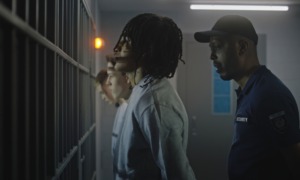 I think I first heard the phrase “people over process” a few years ago in Illinois. I was in a room with a hundred or so people, studying Restorative Circles, and most of us were intently focused on the mechanics of the process. A participant in a practice circle did something that wasn’t on the “script”, and it threw us (or at least me) into a tizzy. Dominic Barter, the developer of the process, said that given a choice between following the process or the person, choose the person. That stuck with me, and I have applied it in all sorts of settings since, and I notice when it isn’t applied to me.
I think I first heard the phrase “people over process” a few years ago in Illinois. I was in a room with a hundred or so people, studying Restorative Circles, and most of us were intently focused on the mechanics of the process. A participant in a practice circle did something that wasn’t on the “script”, and it threw us (or at least me) into a tizzy. Dominic Barter, the developer of the process, said that given a choice between following the process or the person, choose the person. That stuck with me, and I have applied it in all sorts of settings since, and I notice when it isn’t applied to me.
In the realm of justice all too often the process takes precedence, and adherence to rules and policies, to the letter of the law, is seen by some as a virtue. There is a reason for this, one that is symbolized by the blindfold of Lady Justice. We want everyone held accountable to the same degree, no matter how powerful or pitiful they might be.
Of course, you’d have to be wearing a blindfold yourself to think this is the way things work. The disparities of the justice system are rampant, with minorities, the poor, LBGT and just about anyone else who is different than the “norm” over-represented in all phases of the system. It’s enough to make me despair at times, but occasionally I get to see justice play out as I think it should.
This happened earlier this week when I participated in a committee focused on what happens to the youngest kids accused of delinquency. Family and Children’s Services and the Department of Juvenile Justice were represented, along with the court, the police department, the school system, a local provider of various mental health services, and the conflict center. Everyone was there to see what could be done to help not only the kids accused, but also their parents and siblings. All of the young people were under 12, and the majority were under 10.
As each family came in everyone was given a chance to speak and ask questions, with the common goal of figuring out what needed to happen next. Sometimes it was counseling, or a restorative process, support at school, help getting into summer programs, and any number of other proposed solutions.
I saw the face of our community represented in everyone there, from the various organizations to the parents and grandparents, everyone was concerned with the kids. No one was focused on rules or punishment, only in figuring out how to support these youngest citizens and their families in creating a successful environment for these kids to thrive. The committee didn’t avoid the hard questions, but when they asked it was with the goal of a solution.
Here, thanks to the judge’s willingness to focus on people over process, justice was done.































